Surging numbers of migrants are using small boats to reach the UK
by Katy Dartfordeuronews_icons_loading
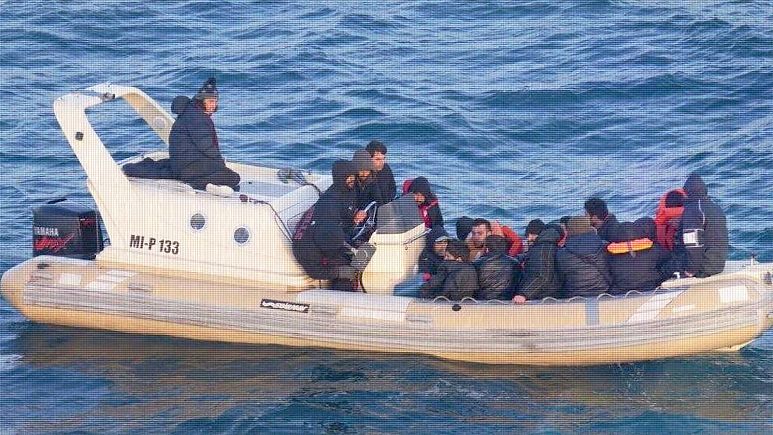
Record numbers of desperate migrants are risking their lives, using small boats to try and get across the English Channel, from France to the UK.
Ferries had been the main target, with people hiding in the back of freight trucks to get to Britain. But now, the smugglers have switched their tactics.
Children were among more than 200 migrants picked up by British rescuers in just 48 hours in February 2020, a record number.
This followed French authorities responding to over 2,700 people trying to cross the Channel in boats last year, a 17-fold increase on 2016. More than 1,800 reportedly made it to British shores and around 125 were sent back to European countries.
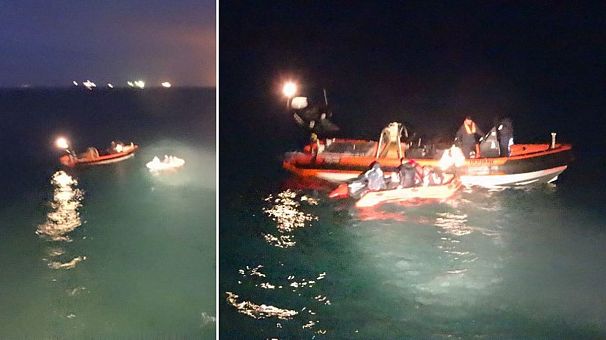
We visit Calais, in northern France, to investigate why there's been such a surge in migrants using boats to cross the Channel. We see the French gendarmerie moving migrants and their tents, part of a daily operation - aimed at stopping a build-up of people.
"What they do is ask the asylum seekers to move their tents just a few metres and if the people are not there, they take their belongings, the tents, personal items, telephones, clothes and sometimes their papers," Clara Houin, a Coordinator with Human Rights Observers, tells Unreported Europe as she watches on.
"It’s part of a political approach to stop camps being set up, to avoid a big ‘Jungle’ like in Calais in 2015."
"We must go by boat"
The police are making the lives of migrants uncomfortable in Calais, but those wanting to get to Britain are determined.
"We must stay here. Just, your government (British), French government, please stop stop disturbing the people in here," says one migrant at the camp in Calais.
"When the government in France or the UK don’t let us go with trucks, we must go by boat. It’s dangerous for us, but we will do this. As will I soon. When we've got a boat, we will go by boat."
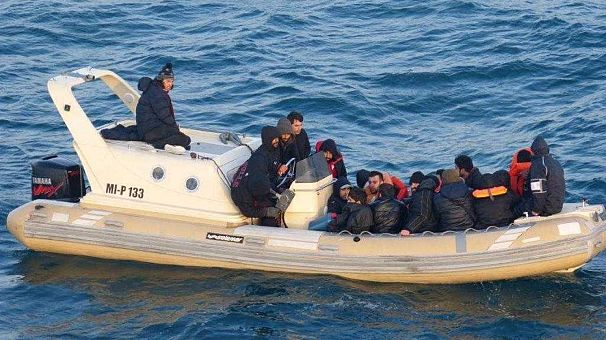
Britain: A land of opportunity?
So why are so many seemingly prepared to risk it all to get to the UK?
Britain remains the "dream" destination for many migrants, seen as a land of opportunity, where they can speak English and re-join friends and family.
Police activity, tighter port security and Brexit are all seen as fuelling the huge rise in small boats now being used to get across the Channel. It’s also said to be cheaper and more successful.
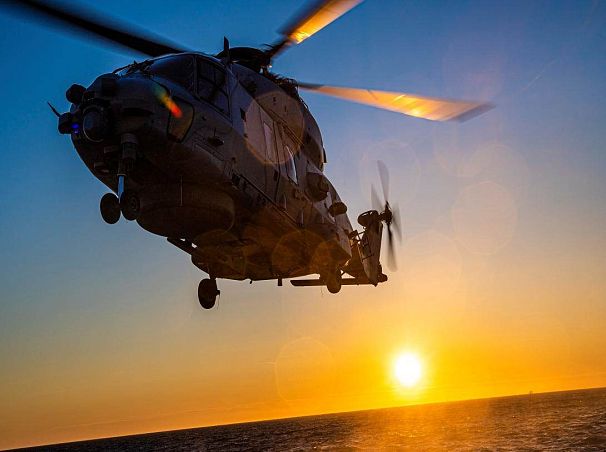
Hunter, Raymond Randoux has lived near a beach just outside Calais for almost 60 years.
"It's the first year I saw migrants here. We never saw them here before. They had been in other areas, where they were in camps spaces were made for them, and then they were cleared. Now, they are coming here," says Randoux.
He suspects smugglers bring boats for the migrants from the UK.
"Most of the guys come from England with the boats in trucks. I think they inflate them when they arrive here, with a pump, because otherwise if they crossed the water with them, they would be spotted for sure. Most of them came from over there."
A tragedy waiting to happen?
On the opposite side of the Channel, former coastguard manager Andy Roberts fears a major tragedy - especially now, in near-freezing conditions.
"These boats are not coming across with a navigator or a helmsman. They’re just pushed off the beach and left to get on with it," he tells Unreported Europe. "There have been two or three reported deaths but, one day, there will be an absolute catastrophe."
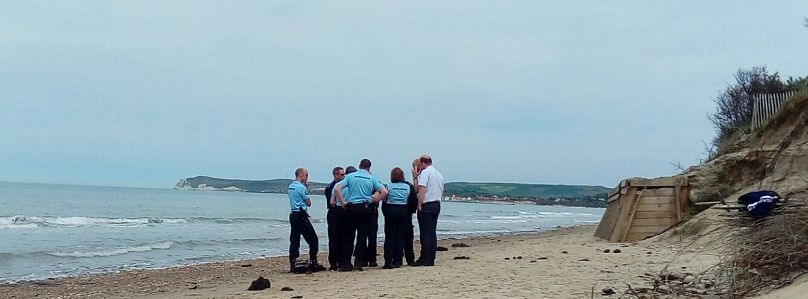
The stretch of water between France and the UK the Dover Strait is the busiest shipping lane in the world. Migrants know they just need to get into British waters.
"There is anecdotal evidence that they refuse to be rescued by the French border force when they’re in the waters there, and then it becomes too dangerous to rescue someone who’s refusing to be rescued get into UK waters and then it becomes the UK government’s responsibility to actually coordinate the search and rescue of people who say they’re in distress," explains Roberts, who adds that the migrants are then brought ashore in Britain.
"I can't understand why that's happening in France"
When the French authorities demolished the infamous Calais Jungle in 2016, it dispersed huge numbers of people. Now, up the coast, near Dunkirk, hundreds of migrants are living in a filthy, cold disused warehouse complex.
Coline Slotala, from NGO, DROP Solidarite, says it's home to around 800 people and is very dangerous.
"I can’t understand what happened here. I come almost every day and I don’t understand why that’s happening in France," she reflects, as she looks from the gates of the camp.
For those including young children, the conditions are harsh.
"This is our home, without electricity, without water, without a bathroom and we’re living here without anything," says one migrant who is desperate to get out.
He says he’s been caught twice trying to go by small boat to Britain. And he would consider trying it again despite the £2,000 to £3,000 cost.
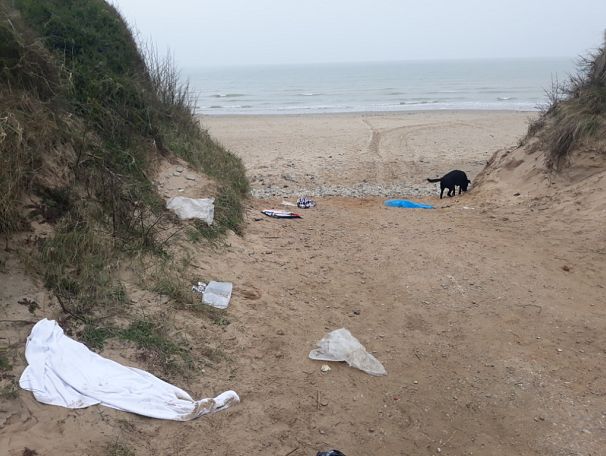
The British government says it’s working closely with France and Belgium to tackle illegal crossings, deploying more detection equipment and drones and that the majority of migrants who try their luck are stopped.
"If I was in my country, I would have already died"
Some young asylum-seekers arrive in Britain on their own, leaving their families at home. Some of them are helped by Kent-based charity Kent Refugee Action Network (KRAN), which provides lessons in English and life skills.
"If I was in my country, I would have already died, I know this. And no, I’m not really regretting it because I’ve got a good life in the UK and I’m so happy," explains one of the attendees, a young asylum-seeker from Afghanistan, who got into Britain in a truck.
But he and the other young people are in Britain at a time of heightened anti-immigrant sentiment.
The message that 'we’ve lost control of our borders' was a big part of the vote for Brexit and the government’s under pressure to send more people back when they’re found.
"I think that where people have got good asylum claims, they need to be given the opportunity to make those asylum claims on the French side of the Channel," says Bridget Chapman from KRAN.
"They can then be processed and allowed to make that journey in a safe and legal manner. You’re not talking about opening up the floodgates then, but what you would do is stop the traffickers’ trade overnight."
"We can’t keep a situation going where people who've got good asylum claims end up risking their lives in dinghies on the busiest shipping lane in the world."
Journalist name • Katy Dartford